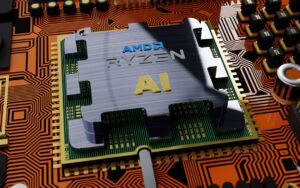Artificial Intelligence (AI) is making substantial progress across various sectors, including education. In the educational context, AI involves the application of intelligent systems and algorithms to enhance learning experiences for both students and educators. This technology has the potential to transform teaching methods, learning processes, and educational institution operations.
AI can be utilized for personalized learning, automation of administrative tasks, provision of immediate feedback, and creation of novel educational content. As AI technology continues to evolve, its significance in education grows, necessitating a comprehensive understanding of its advantages and potential drawbacks by educators and policymakers.
Key Takeaways
- AI in education refers to the use of artificial intelligence to enhance learning and teaching processes.
- Benefits of AI in education include personalized learning, improved student engagement, and efficient administrative tasks.
- Challenges and concerns of AI in education include data privacy, ethical considerations, and potential job displacement.
- AI tools and technologies in education include virtual tutors, adaptive learning platforms, and data analytics for student performance.
- Implementing AI in the classroom requires teacher training, infrastructure support, and careful consideration of ethical implications.
- The future of AI in education holds potential for further personalized learning experiences and improved educational outcomes.
- In conclusion, it is recommended to carefully consider the ethical and privacy implications of AI in education while leveraging its benefits for enhanced learning experiences.
Benefits of AI in Education
One of the key benefits of AI in education is its ability to personalize learning for students. Through the use of AI-powered adaptive learning platforms, students can receive customized learning experiences based on their individual needs, preferences, and learning styles. This can lead to improved student engagement, motivation, and academic performance.
Additionally, AI can help educators identify students who may be struggling and provide targeted interventions to support their learning. Another benefit of AI in education is its potential to automate administrative tasks, such as grading, scheduling, and record-keeping. This can free up valuable time for educators to focus on teaching and mentoring students, ultimately improving the overall quality of education.
Furthermore, AI can provide real-time feedback to students, allowing them to track their progress and make adjustments to their learning strategies as needed. Overall, the integration of AI in education has the potential to create more efficient, effective, and personalized learning experiences for students and educators alike. On the other hand, AI can also help in creating new educational content.
With the use of natural language processing and machine learning algorithms, AI can generate interactive and engaging educational materials, such as quizzes, tutorials, and simulations. This can supplement traditional teaching methods and provide students with additional resources to enhance their learning. Moreover, AI can assist in identifying patterns and trends in student data, which can help educators make informed decisions about curriculum development and instructional strategies.
By analyzing large amounts of data, AI can provide valuable insights into student learning behaviors and preferences, which can inform the design of more effective educational programs. Additionally, AI can support language translation and interpretation, making educational resources more accessible to students from diverse linguistic backgrounds. Overall, the integration of AI in education has the potential to create more engaging, inclusive, and effective learning experiences for students.
Challenges and Concerns of AI in Education

While there are numerous benefits to integrating AI in education, there are also several challenges and concerns that need to be addressed. One of the main concerns is the potential for AI to replace human educators. While AI can automate certain tasks and provide personalized learning experiences, it cannot fully replicate the expertise, empathy, and mentorship that human teachers provide.
It is important for educators to recognize the limitations of AI and ensure that it is used as a tool to support their work rather than replace it. Additionally, there are concerns about data privacy and security when using AI in education. As AI systems collect and analyze large amounts of student data, there is a risk of unauthorized access or misuse of this information.
It is crucial for educational institutions to implement robust data protection measures and ensure that student privacy is safeguarded. Another challenge is the potential for bias in AI algorithms. If not carefully designed and monitored, AI systems can perpetuate existing biases and inequalities in education.
For example, if an AI-powered adaptive learning platform is trained on biased data, it may inadvertently reinforce stereotypes or disadvantage certain groups of students. It is essential for developers and educators to actively address bias in AI systems and ensure that they are designed to promote fairness and equity in education. Furthermore, there are concerns about the ethical implications of using AI in education, such as the impact on student autonomy and agency.
It is important for educators to consider the ethical implications of using AI in the classroom and involve students in discussions about how this technology is used to support their learning.
AI Tools and Technologies in Education
| AI Tool/Technology | Application | Benefits |
|---|---|---|
| Chatbots | Answering student queries, providing personalized support | 24/7 availability, reducing workload on educators |
| Adaptive Learning Platforms | Customizing learning paths based on student performance | Individualized learning, improved student outcomes |
| Virtual Reality (VR) | Immersive learning experiences, virtual field trips | Enhanced engagement, experiential learning |
| Automated Grading Systems | Scanning and grading assignments, providing instant feedback | Time-saving for educators, consistent grading |
There are various AI tools and technologies that are being used in education to enhance teaching and learning experiences. One such tool is intelligent tutoring systems, which use AI algorithms to provide personalized instruction and feedback to students. These systems can adapt to individual student needs and provide targeted support in specific subject areas.
Another AI technology that is being used in education is natural language processing (NLP), which enables machines to understand and interpret human language. NLP can be used to develop language translation tools, chatbots for student support, and speech recognition systems for language learning. In addition to intelligent tutoring systems and NLP, machine learning algorithms are also being used in education to analyze student data and provide insights into learning behaviors and outcomes.
These algorithms can identify patterns in student performance, predict future academic success, and inform instructional decision-making. Furthermore, virtual reality (VR) and augmented reality (AR) technologies are being integrated into educational settings to create immersive learning experiences. These technologies can simulate real-world environments, facilitate interactive learning activities, and enhance student engagement.
Overall, these AI tools and technologies have the potential to transform the way students learn and educators teach.
Implementing AI in the Classroom
Implementing AI in the classroom requires careful planning, collaboration, and ongoing professional development for educators. One key aspect of implementing AI in the classroom is ensuring that educators have access to training and support to effectively integrate AI tools into their teaching practices. This may involve providing professional development opportunities on how to use specific AI technologies, as well as guidance on how to interpret and act on the insights generated by these tools.
Additionally, it is important for educators to collaborate with instructional designers, data analysts, and other experts to develop effective strategies for integrating AI into their teaching. Another important consideration when implementing AI in the classroom is ensuring that students are prepared to engage with these technologies in a meaningful way. Educators should provide opportunities for students to develop digital literacy skills, critical thinking abilities, and ethical awareness related to the use of AI in education.
This may involve incorporating lessons on data privacy, bias detection, and responsible technology use into the curriculum. Furthermore, educators should involve students in discussions about how AI can be used to support their learning needs and empower them to provide feedback on their experiences with these technologies.
Future of AI in Education

The future of AI in education holds great promise for transforming teaching and learning experiences. As AI technologies continue to advance, they have the potential to become even more personalized, adaptive, and responsive to individual student needs. For example, AI-powered virtual assistants could provide real-time support to students as they work through assignments or study materials.
Additionally, as natural language processing technologies improve, AI systems may become better equipped to understand and respond to student questions and feedback in a more conversational manner. Furthermore, as more educational institutions adopt AI technologies, there will likely be an increase in the availability of open educational resources (OER) that are powered by AI. These resources could include interactive tutorials, adaptive quizzes, and personalized study guides that are tailored to individual student needs.
Additionally, as VR and AR technologies become more accessible, they may be integrated into a wider range of educational settings to create immersive learning experiences across various subject areas.
Conclusion and Recommendations
In conclusion, the integration of AI in education has the potential to revolutionize teaching and learning experiences by providing personalized support for students, automating administrative tasks for educators, creating new educational content, and enhancing overall educational quality. However, it is important for educators and policymakers to address challenges related to bias, privacy, ethics, and student autonomy when implementing AI in educational settings. To effectively integrate AI into education, it is recommended that educators receive ongoing professional development on how to use specific AI tools effectively.
Additionally, it is important for educators to involve students in discussions about how AI can be used to support their learning needs while also empowering them with digital literacy skills and ethical awareness related to the use of AI technologies. As AI continues to advance, it will be crucial for educators to stay informed about new developments in this field and adapt their teaching practices accordingly to ensure that all students have access to high-quality educational experiences that leverage the benefits of AI while addressing its challenges responsibly.



